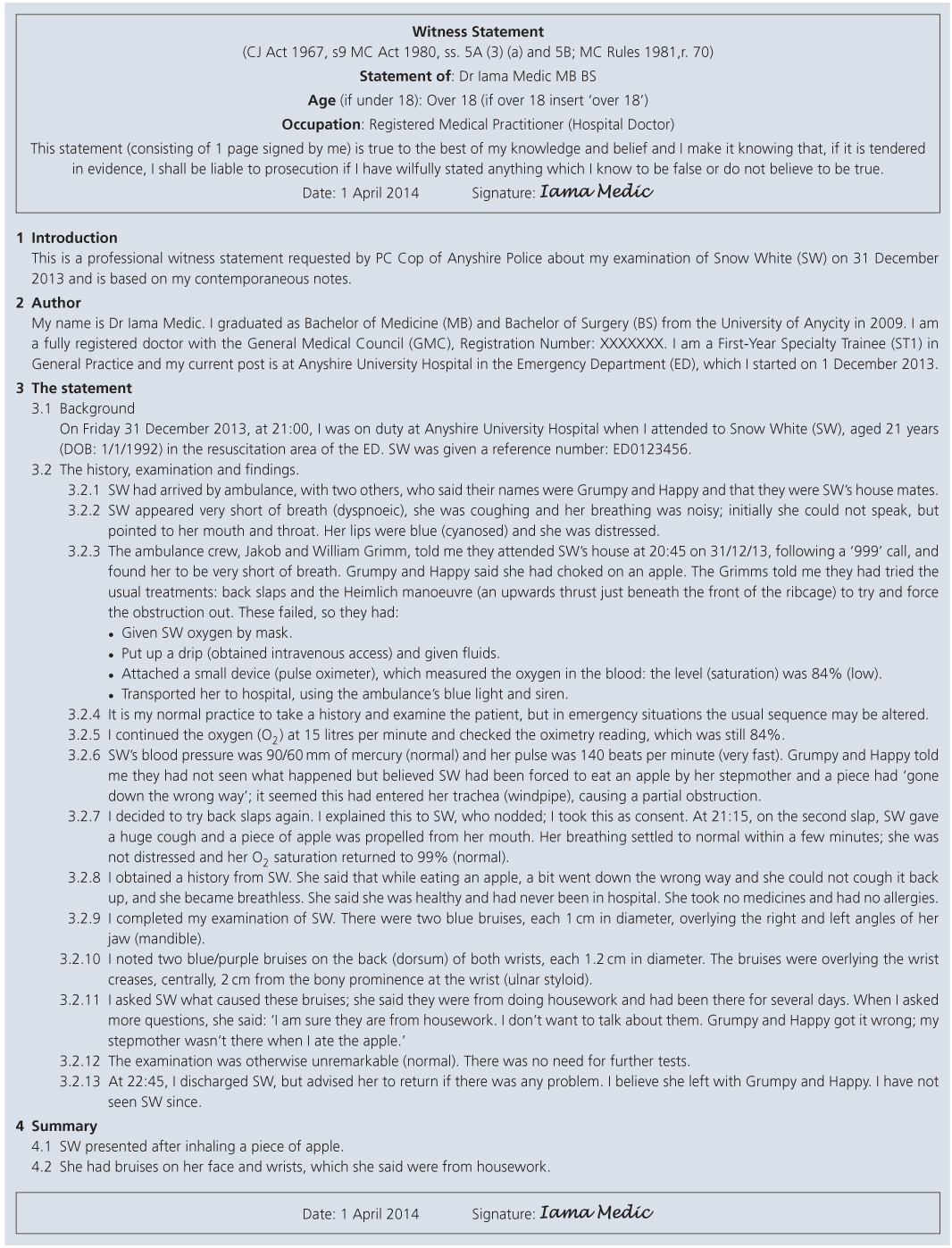Chapter 22 A clinician may attend court in a number of roles (see Box 22.1). This chapter deals only with professional witness statements. These may be needed for: Similarly, reports, rather than statements, may be needed for other proceedings, such as the family court; these are not covered here. A statement is essentially a formal account of the facts relating to an incident or occurrence (see Box 22.2). It is usually a document written by the clinician. Sometimes it is given orally and written down by a police officer; the witness is then asked to read it, make any amendments, initial them and sign it. If an oral statement is given, it must be read and edited carefully before signature, as the duties and obligations still apply. Criminal justice procedures and laws differ between and within countries: The statement should assist an investigation and the court by proving an account of your involvement; that is, what was: Or a combination of all of these. If a clinician writes a statement using another’s notes or records, this must be made clear. You have an overriding duty to tell the truth and an obligation to assist the court. You may have a declaration to make at the beginning or the end of the document. There may be a mandatory form of words for the jurisdiction in which you work. It is important to note that if you do not fulfil your duties and obligations, your probity, and in turn your fitness to practice, may be called into question. It depends. You may have written confirmation of the patient’s permission but you should clarify this. Discuss the statement with a senior colleague, the legal department or the information governance lead in your trust and/or your professional indemnity organisation. Check whether there is a local policy or protocol to which you should refer. Some criminal and statutory investigations may require you to comply with such a request whether or not you have the patient’s permission to do so. Figure 22.1 Sample witness statement (fictional).
Writing a Statement as a Professional Witness
OVERVIEW
Introduction
Box 22.1 Clinician attendance at court
Box 22.2 What do I do when I am asked to write a statement?
Purpose
Duties and obligations
Do I need the patient’s permission to write a statement?
How do I start?
What do I do next?

Basicmedical Key
Fastest Basicmedical Insight Engine



